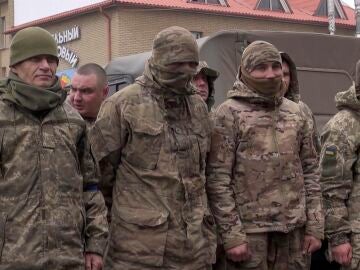
Russia has systematically tortured its captured prisoners of war since its aggression against Ukraine began, while Ukrainian forces have done so in certain circumstances and places, but sporadically, the UN said today. A mission of United Nations human rights observers working on the ground has corroborated “with a considerable margin of certainty” a series of tortures by Russian forces and their allies, using methods including electric shocks, beatings, burns and other types of abuse.
The head of the mission, Matilda Bogner, told reporters in Geneva that the Ukrainian government gave her team confidential access to the Russian prisoners, while she was only able to interview the Ukrainian prisoners once they were released by Russia, usually through a prisoner exchange. Total, the mission interviewed 159 prisoners of war (including twenty women) who were held by Russia and its supporting armed groups, as well as 175 prisoners held by Ukraine.
It has been possible to determine that in addition to extreme physical abuse and psychological abuse against Ukrainian prisoners, they were also kept in inhumane conditions, sometimes without access to toilets or water for more than a day. The worst moment was the arrival of the prisoners at the detention centers, where they went through an “admission procedure”, which actually consisted of beatings, threats, attacks with dogs and painful positions for long periods of time.
Prisoners with a certain hierarchy or responsibility are the most likely to be tortured in order to extract information from them, unlike common soldiers who are considered of little importance. Regarding the prisoners of war in less than Ukraine, Bogner said that there are “credible allegations” of summary executions of people who were already hors de combat and of several cases of torture and ill-treatment, allegedly committed by members of the Ukrainian armed forces.
The head of the mission maintained that the alleged executions correspond to the initial period of the war and that Ukraine opened investigations in this regard, although no progress has been seen in these. The mission has communicated its findings to the Russian government, but Bogner declined to say whether she had received any response. Observers have also found that, in general, Human rights violations have been greater in the most acute periods of hostilities, particularly in the first months of the war, which began on February 24. Although October was the month with the lowest number of casualties, human rights violations continue, Bogner stressed.
Source: Lasexta
Mario Twitchell is an accomplished author and journalist, known for his insightful and thought-provoking writing on a wide range of topics including general and opinion. He currently works as a writer at 247 news agency, where he has established himself as a respected voice in the industry.












